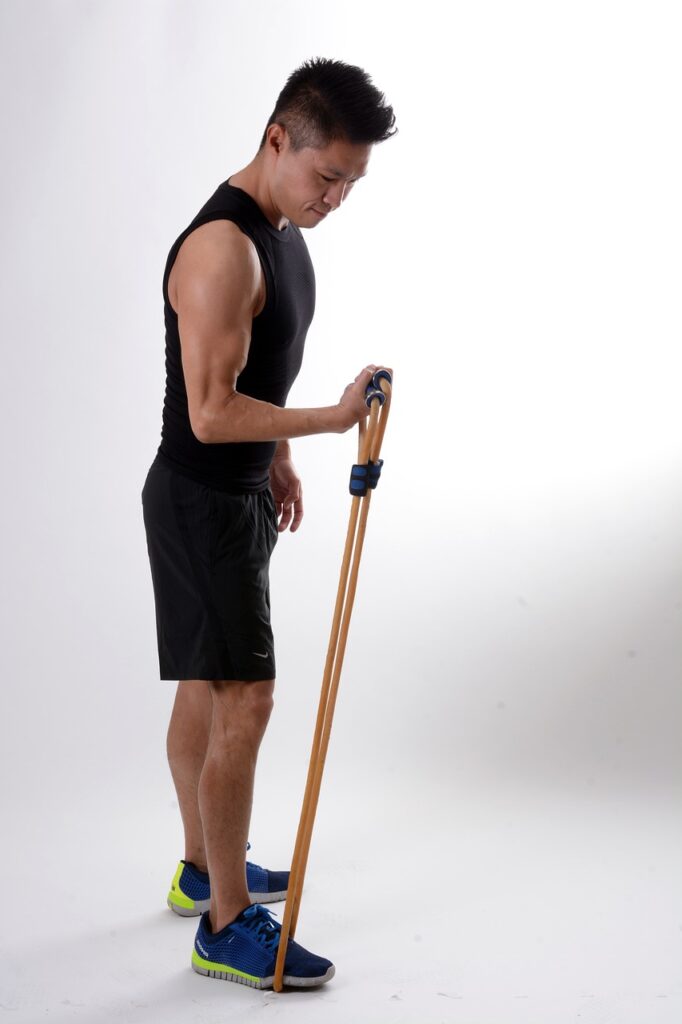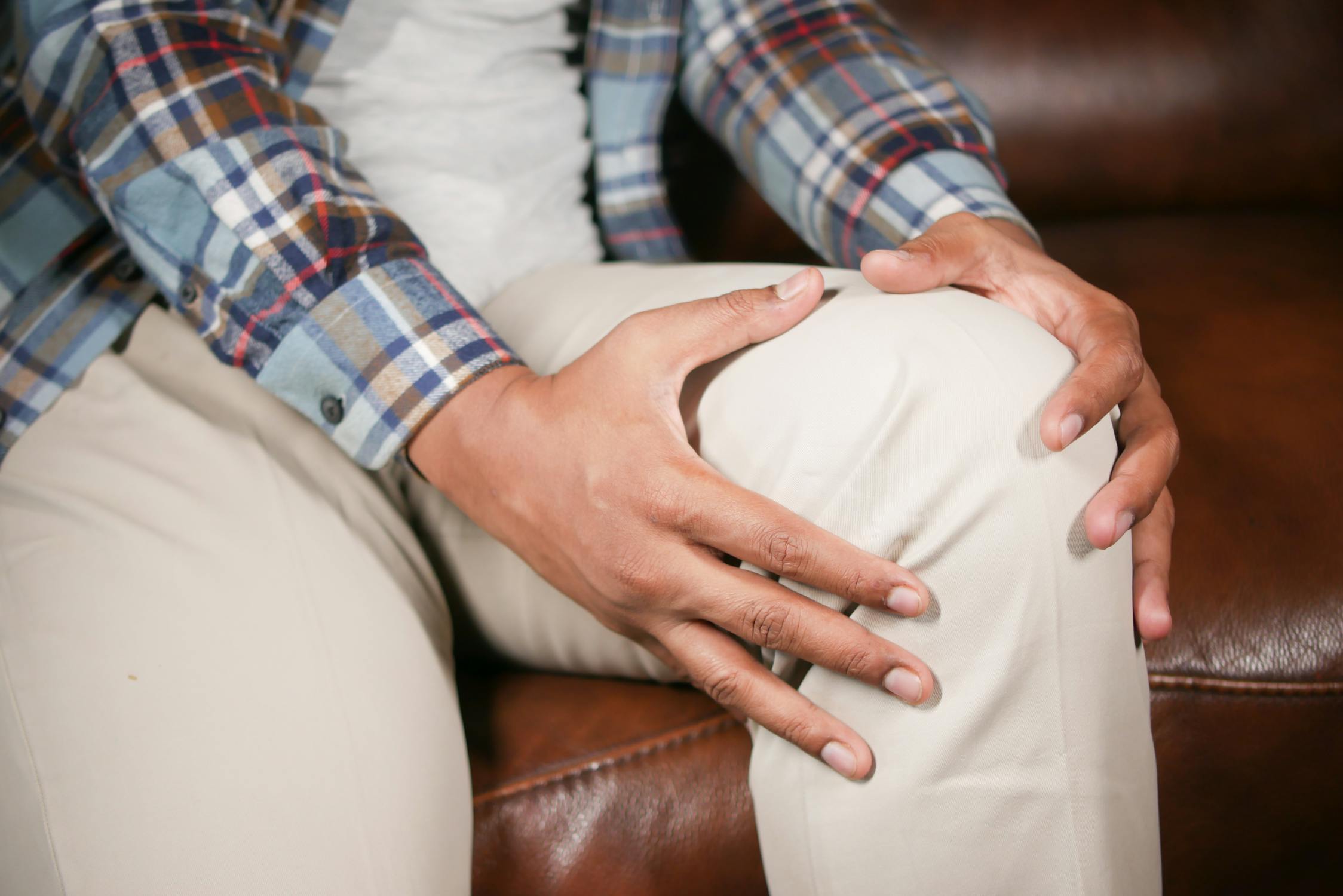
Exercise: The solution to mental and physical wellbeing
In today’s fast-paced world, prioritizing exercise is more important than ever. Not only does it contribute to a healthy body weight and overall fitness, but it also offers a multitude of benefits that significantly enhance our well-being. Let’s dive into some of the incredible advantages you’ll reap from incorporating regular exercise into your routine.

Numerous studies have shown its effectiveness in combatting depression and anxiety, making it an essential tool for mental health. Additionally, it may help reduce inflammation, a factor often elevated in individuals dealing with depression. The positive impact on the brain is notable, as well. First and
foremost, exercise is a powerful mood booster. Exercise doesn’t stop at mental health—it also greatly influences the quality of your sleep. Research reveals that habitual exercise can lead to more restful nights, with improved sleep quality and longer duration. It even plays a role in setting your body’s

internal clock for better alertness during the day and restfulness at night. Looking at the bigger picture, exercise become a cornerstone of long-term health. It bolsters brain and bone health, preserves crucial muscle mass as we age, and even enhances our sex lives. Moreover, it supports gastrointestinal function and significantly reduces the risk of various diseases, including cancer and stroke. In fact, studies involving over 116,000 adults demonstrated a
19 percent decrease in the risk of death from any cause with the recommended 150 to 300 minutes of weekly physical activity. For those managing chronic diseases, exercise is a game-changer. Conditions like osteoarthritis, high blood pressure, diabetes, and even neurological disorders like multiple sclerosis and Parkinson’s benefit immensely from physical activity. It aids in pain management, improves insulin sensitivity, and promotes mobility, among many other positive effects.


So, how much exercise do you need?
According to the U.S. Department of Health and Human Services, a minimum of 150 minutes of moderate-intensity aerobic activity (like brisk walking) or 75 minutes of vigorous-intensity aerobic activity (such as jogging) per week is the starting point for good health. Incorporating muscle-strengthening activities at least two days a week is also crucial. Remember, these guidelines are the baseline for long-term health, and more activity can lead to even greater benefits. However, it’s essential to find the right balance, as excessive exercise may lead to negative health effects.
Include the following to improve strength, stamina and flexibility
If you want to be strong, flexible, and have the stamina to actually survive a day without feeling like you got hit by a truck, here’s what you need to do.
1. Warm Up:
- Good posture during warm-up exercises helps activate your muscles efficiently, to enter your ideal fat-burning zone faster and also lowers the chances of getting injured during exercise.
- Start with 10- 15 minutes of something that’ll get your heart racing like jumping jacks, walking on the treadmill, or aerobics.

2. Resistance or High Intensity Interval Training (HIIT)
- Followed by 15- 30 minutes of something more intense like strength training with resistance bands, body weight or weights.
- High Intensity Interval Training (HIIT) is great for burning fat and building lean muscle, but it’s more suited for those who are at an intermediate to advanced level of fitness. However, if your primary goal is to build more muscle, resistance training takes the cake.
- For a balanced approach target at least three body parts i.e. your chest, back and arms or thighs, quadriceps and abs.

Don't forget to Stretch!

3. Stretch it out
Stretching is actually the most important part of recovery after every workout, so don’t skip it! Spend 5-10 minutes on it, holding each stretch for 15-30 seconds, and repeat 2-4 times. Trust me, it’s worth it to avoid ending up as stiff as a board. And for anyone who doesn’t want to trip over their own feet, balance exercises are a game changer. Just 10-15 minutes a few times a week will keep you steady on your feet—and avoid those clumsy moments.
Always pay attention to your body and avoid overexertion, particularly if you’re new to exercise. If you have any health concerns or are just starting out, consulting an experienced Fitness Trainer is a great idea. They can offer personalized advice and help you organize an effective exercise routine that suits your unique circumstances.
Remember, consistency is key, so find a routine that you enjoy and can stick with in the long run! Check out our “Get Started: Begin Exercising” article for a more detailed guide to get you on track to better health and fitness.
In conclusion, exercise isn’t just about looking good in your Instagram selfies (though that’s a nice bonus); it’s about feeling good, sleeping like a baby, and ensuring that you don’t turn into a couch potato as you get older. So, lace up those sneakers, hit the pavement or a suitable place to exercise, and enjoy the incredible rewards of a more active lifestyle. Your future self will thank you more than you can imagine.

12 Benefits of Exercise & Being Physically Active

- Improves Your Mood
Feeling angry or sad? Then get moving! Exercise is a natural mood booster because it helps your body release endorphins—those “feel-good” chemicals in your brain. You can start feeling better just a few minutes into your workout. And the best part? The positive effects of regular exercise can last for hours, or even days, so it’s a definite win for your mood and energy.
So, the next time you’re feeling off or overwhelmed, just get moving! Whether it’s a walk, jog, or some stretches, you’ll be surprised by how quickly it lifts your mood and clears your mind. Exercise doesn’t just build muscles, it builds a better mindset too!


2. Reduces Stress
Exercise is a great way to reduce stress by helping your body release tension and boosting your mood. When you work out, your brain releases endorphins, which are natural chemicals that make you feel happy and relaxed. It also lowers stress hormones like cortisol, helping to calm both your mind and
body. Regular exercise can improve your ability to handle stress by giving you more energy and helping you sleep better, making it easier to manage everyday challenges. Activities like playing tennis, hiking, or doing aerobics are especially good for releasing feel-good hormones. Plus, focusing on your workout can take your mind off stress, giving you a break and helping you feel more relaxed and in control.

3. Improves Symptoms of Depression
Many studies have found that different types of exercise can help reduce symptoms of depression and anxiety. Among these, strength or resistance training has shown some of the most significant benefits, even producing effects similar to antidepressant medications.
In fact, strength training can complement other treatments, enhancing the results of antidepressants and talk therapy. For example, engaging in strength training three times a week can boost the effectiveness of both medication and therapy, providing additional support for improving mental health.
4. Improves Brain Function & Reduces Anxiety
The more exercise you do, the better your brain functions, especially when it comes to making decisions and managing emotions. Exercise encourages neuroplasticity, which means your brain can adapt and adjust to changes, helping you handle stress more effectively.

Regular aerobic exercise also increases the amount of gray matter in important areas of your brain, like the prefrontal cortex and hippocampus. This leads to better attention and impulse control. Overall, exercise can help you stay calmer, feel more in control of your emotions, and avoid reacting impulsively to stressful situations.
5. Gives You More Energy
Exercise can actually give you more energy by making your body work more efficiently. When you work out, your heart and lungs get stronger, which helps deliver more oxygen and nutrients to your muscles. This boosts your stamina and reduces tiredness. Physical activity also releases endorphins, which are chemicals that make you feel good and more alert.
Regular exercise helps you sleep deeper, so you wake up feeling more refreshed. Even short bursts of exercise can make you feel more awake and active during the day. It might seem odd, but getting moving when you’re tired can help you feel more energized and ready to take on the day.


6. Helps You Fall Asleep Faster
The more you move, the better you’ll sleep. If you have trouble sleeping, try exercising earlier in the day, as it raises your body temperature and helps calm your mind. This also helps regulate your sleep cycle. Exercise reduces stress and anxiety, which are common causes of sleeplessness, and it helps balance hormones that control sleep, making it easier to
fall and stay asleep. After working out, your body cools down, which signals that it’s time to rest. Exercise also tires your muscles, so your body feels ready to sleep. Just avoid intense exercise too close to bedtime, as it may leave you feeling too energized to sleep. In general, staying active during the day can help you sleep better at night.
7. Improves Sleep Quality
Exercise can improve your sleep by helping you fall asleep faster and stay asleep longer. When you work out, your body becomes tired in a healthy way, making it easier to relax and drift off at night. Regular exercise also helps regulate your natural sleep cycle, making your sleep more restful. It reduces

stress and anxiety, which can interfere with sleep, and balances hormones that control sleep. Exercise also releases endorphins that improve your mood and help you feel more relaxed before bed.
High-intensity workouts like HIIT can boost sleep time and make it easier to fall asleep, while activities like aerobic, strength, and flexibility training reduce daytime sleepiness and improve deep sleep, which helps with muscle repair and immune health. Just avoid exercising too close to bedtime, as it might leave you too energized to sleep.

8. Improves Self Esteem & Confidence
Getting stronger is a powerful feeling. Any progress on your fitness journey, big or small, can boost your confidence to take on tougher challenges, which in turn helps improve your willpower. For example, going from not being able to run around the block to finishing a 5K is a big achievement. The same goes for lifting more weight, like going
from bench pressing 100 pounds to 200 pounds. This sense of physical strength and willpower not only improves your body but also boosts your confidence in all areas of life. By getting and achieving fitness goals, you prove to yourself that you’re capable of achieving any challenging goal you put your mind to, improving your overall self confidence as a result.

9. Increases Productivity
Exercise can boost your focus, sharpness, and concentration, making you more productive at work. Physical activity increases blood flow to your brain, which helps improve mental clarity and cognitive function. As a result, you’re able to stay
more focused on tasks, think more clearly, and make better decisions throughout the day. Regular exercise also reduces stress and boosts mood, helping you stay calm and energized, so you can tackle your work with more efficiency and less distraction.
10. Lowers The Risk of Cancer

inflammation—all of which play a role in cancer prevention. Exercise can also help regulate hormones like insulin and estrogen, which, when out of balance, can increase the risk of certain cancers. Additionally, staying active promotes better circulation, helping to remove harmful substances from the body more efficiently. By making exercise a regular part of your routine, you can significantly lower your risk of cancer.
11. Reduces Arthritis Pain
Exercise can help reduce the risk of arthritis pain by strengthening the muscles around the joints, improving flexibility, and keeping the joints lubricated. Regular physical activity helps maintain a healthy weight, which reduces

pressure on weight-bearing joints like the knees and hips, easing discomfort. Exercise also increases blood flow, delivering nutrients to the joints and promotes healing. Low-impact activities like swimming, walking, or cycling are especially beneficial for people with arthritis, as they improve joint function without putting too much stress on them. By staying active, you can manage arthritis symptoms and reduce the risk of pain and stiffness.

12. Improves Heart Health
Exercise is one of the most effective ways to improve heart health. Regular physical activity strengthens the heart muscle, helping it pump blood more efficiently throughout the body. It also improves circulation, lowers blood pressure, and helps
maintain healthy cholesterol levels, all of which reduce the risk of heart disease. Exercise helps prevent the buildup of plaque in the arteries and supports better blood flow, making the heart work less hard. In addition, it can help manage weight, reduce stress, and improve overall cardiovascular function. Even moderate exercise, like walking or cycling, can have a significant positive impact on heart health and reduce the risk of heart-related conditions.
"The Missing piece to living a happier healthier life."

Exercise is often the missing piece to living a happier and healthier life because it offers so many benefits for both your body and mind. It helps improve physical health by strengthening your heart, muscles, and bones, and lowers the risk of chronic diseases like heart disease, diabetes, and obesity. But the benefits go beyond just physical health—regular exercise also boosts mental well-being by reducing stress, improving mood, and enhancing sleep. The endorphins released during exercise make you feel happier, while the routine of being active helps create a sense of accomplishment and control over your health.
Making exercise a regular part of your life can transform how you feel every day. Whether it’s boosting your energy levels, reducing anxiety, or improving your sleep, exercise sets the foundation to live a life that’s not only healthier, but also more enjoyable. It doesn’t matter if you’re a fitness expert or just

starting out. Every bit of movement counts, whether its to lose weight or feel more healthy and balanced. Self discipline and consistency is the key, but the ultimate secret to reaching your health and fitness goals is to remember that you should aim to master those healthy habits, before your bad habits masters you.